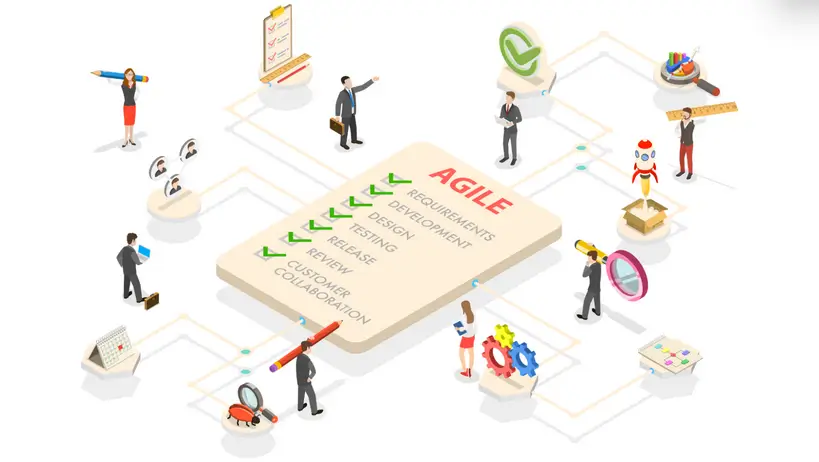
The world of software development is constantly evolving. To adapt to this dynamic and deliver quality products on time, companies are increasingly turning to agile methodologies. These approaches, which emphasise flexibility, collaboration and adaptation to change, have revolutionised project management.
But which agile tools and methods are best suited to your projects ?
Why adopt an agile approach ?
Agile methodologies offer a number of advantages over traditional methods :
- Flexibility : Ability to adapt quickly to changes and new requirements.
- Collaboration : Encourages teamwork and exchanges between the various project participants.
- Quality : Enables quality products to be delivered at each iteration.
- Customer satisfaction : The customer is involved throughout the project and can provide ongoing feedback.
The main agile methodologies

- Scrum : This is the best-known agile method. It is based on short iterations called ‘sprints’ and on clearly defined roles (Product Owner, Scrum Master, development team).
- Kanban : This method visualises the workflow using a Kanban board. It helps to identify bottlenecks and optimise the process.
- eXtreme Programming (XP) : This method focuses on code quality, collaboration and customer satisfaction. It includes practices such as unit testing, pair programming and continuous integration.
Essential agile tools
To implement an agile methodology, it is essential to have the right tools. Here are a few examples :
- Task management tools : These allow you to visualise tasks, monitor project progress and facilitate collaboration.
- Version management tools : These allow you to manage different versions of the source code and collaborate effectively with other developers.
- Communication tools : These tools facilitate communication within the team and with customers.
- Project management tools : These tools provide an overview of the project and enable you to track the various stages.

How do you choose the right methodology and tools ?
The choice of agile methodology and tools depends on a number of factors :
- The size of the project : For small projects, Kanban may be sufficient. For more complex projects, Scrum or a hybrid approach may be more appropriate.
- The complexity of the product : If the product is complex and requires many iterations, Scrum may be a good choice.
- The team’s habits : It’s important to choose a methodology and tools that the team is comfortable using.

